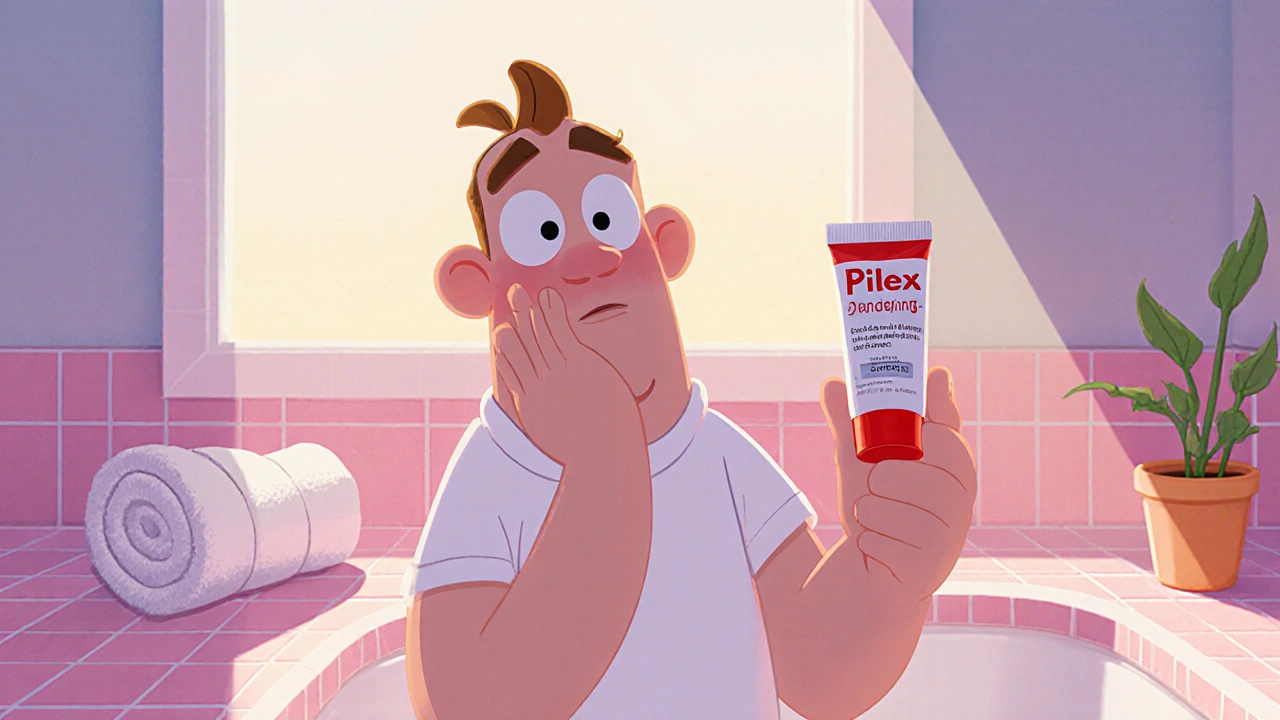OTC Hemorrhoid Medication: Best Choices, How They Work, and What to Avoid
When you're dealing with OTC hemorrhoid medication, over-the-counter treatments designed to reduce swelling, itching, and pain from swollen veins in the rectum or anus. Also known as hemorrhoid relief products, these are the first line of defense for most people before seeing a doctor. They’re not a cure, but they can make a real difference—especially if you catch it early.
Most hemorrhoid creams, topical ointments applied directly to the affected area to soothe irritation and reduce inflammation contain ingredients like hydrocortisone, witch hazel, or lidocaine. Hydrocortisone cuts down swelling and itching, but using it for more than a week can thin your skin. Lidocaine numbs the pain, which feels great short-term, but doesn’t fix the root problem. Then there are hemorrhoid suppositories, medicated inserts designed to deliver relief deep inside the rectum where external creams can’t reach. These are better for internal hemorrhoids or when sitting is unbearable. Some people swear by witch hazel pads—simple, cheap, and surprisingly effective at cooling things down.
But here’s what most guides don’t tell you: OTC hemorrhoid meds work best when paired with stool softeners, medications that help pass bowel movements more easily to prevent straining, a major cause of hemorrhoid flare-ups. Straining is the enemy. If your poop is hard or you’re pushing too hard, no cream or suppository will help long-term. Products like docusate sodium (Colace) are gentle, non-habit forming, and often recommended by pharmacists. And yes, drinking more water and eating fiber matters—no magic pill replaces that.
Watch out for products with phenylephrine or benzocaine. Phenylephrine shrinks blood vessels, which sounds good, but it can cause rebound swelling if used too often. Benzocaine can trigger allergic reactions in some people, especially around sensitive areas. And never mix multiple products without checking with a pharmacist. One cream, one suppository, and a stool softener—that’s usually enough. More doesn’t mean better.
It’s also worth knowing that hemorrhoids often come back if you don’t change habits. Sitting too long, lifting heavy stuff, constipation, pregnancy—all these increase pressure in the pelvic area. That’s why some people get relief for weeks, then it’s back in a month. The real win? Combining the right OTC medication with lifestyle tweaks. Squatting instead of sitting on the toilet, taking walks, avoiding spicy foods if they trigger symptoms. These aren’t glamorous, but they’re what actually stops the cycle.
Below, you’ll find real-world comparisons and stories from people who’ve tried everything—from the cheapest drugstore brands to the pricier ones with fancy packaging. Some worked. Some didn’t. A few even made things worse. We’ve sorted through the noise so you don’t have to guess what’s worth your time or money.

